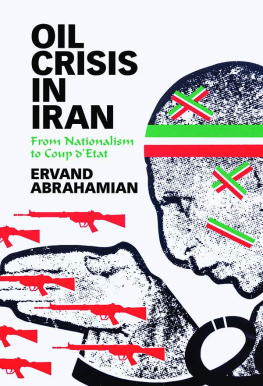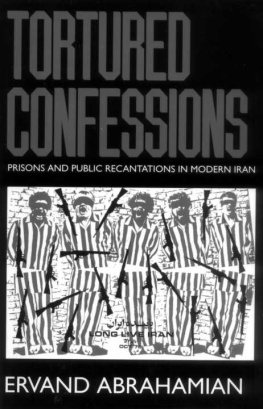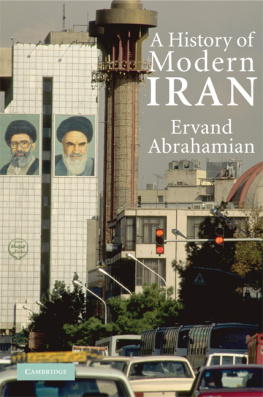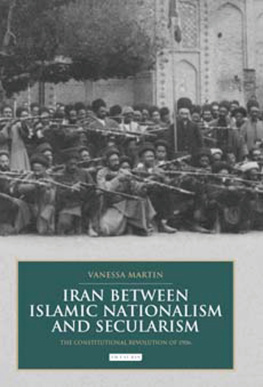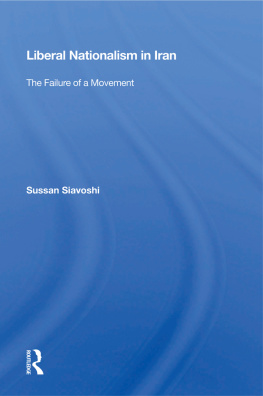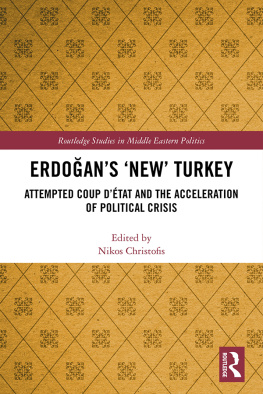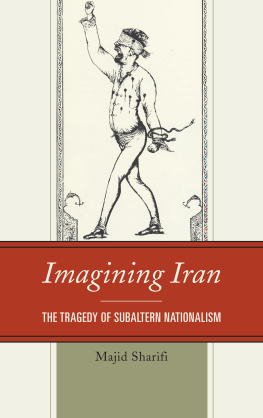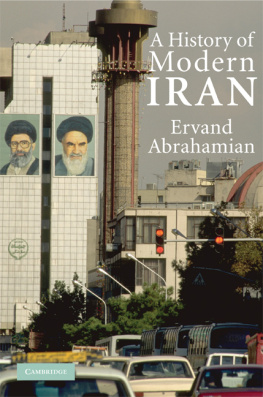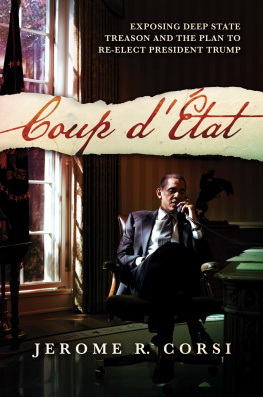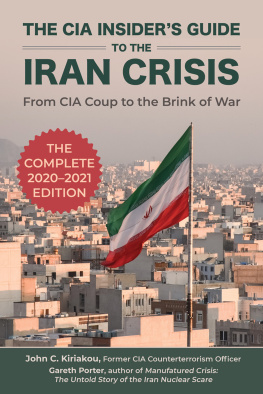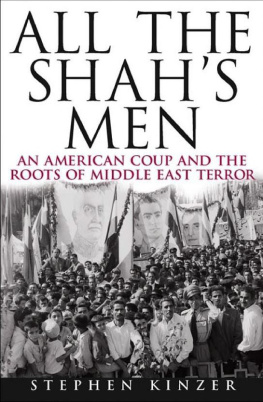Ervand Abrahamian - Oil Crisis in Iran: From Nationalism to Coup DEtat
Here you can read online Ervand Abrahamian - Oil Crisis in Iran: From Nationalism to Coup DEtat full text of the book (entire story) in english for free. Download pdf and epub, get meaning, cover and reviews about this ebook. year: 2021, publisher: Cambridge University Press, genre: Politics. Description of the work, (preface) as well as reviews are available. Best literature library LitArk.com created for fans of good reading and offers a wide selection of genres:
Romance novel
Science fiction
Adventure
Detective
Science
History
Home and family
Prose
Art
Politics
Computer
Non-fiction
Religion
Business
Children
Humor
Choose a favorite category and find really read worthwhile books. Enjoy immersion in the world of imagination, feel the emotions of the characters or learn something new for yourself, make an fascinating discovery.
- Book:Oil Crisis in Iran: From Nationalism to Coup DEtat
- Author:
- Publisher:Cambridge University Press
- Genre:
- Year:2021
- Rating:4 / 5
- Favourites:Add to favourites
- Your mark:
- 80
- 1
- 2
- 3
- 4
- 5
Oil Crisis in Iran: From Nationalism to Coup DEtat: summary, description and annotation
We offer to read an annotation, description, summary or preface (depends on what the author of the book "Oil Crisis in Iran: From Nationalism to Coup DEtat" wrote himself). If you haven't found the necessary information about the book — write in the comments, we will try to find it.
Oil Crisis in Iran: From Nationalism to Coup DEtat — read online for free the complete book (whole text) full work
Below is the text of the book, divided by pages. System saving the place of the last page read, allows you to conveniently read the book "Oil Crisis in Iran: From Nationalism to Coup DEtat" online for free, without having to search again every time where you left off. Put a bookmark, and you can go to the page where you finished reading at any time.
Font size:
Interval:
Bookmark:
Oil Crisis in Iran
Focusing on the turbulent twenty-eight months between April 1951 and August 1953, this book, based on recently declassified CIA and US State Department documents from the Mossadeq administration, tells the story of the Iranian oil crisis, which would culminate in the coup of August 1953. Throwing fresh light on US involvement in Iran, Ervand Abrahamian reveals exactly how immersed the USA was in internal Iranian politics long before the 1953 coup, in parliamentary politics, and even in saving the monarchy in 1952. By weighing rival explanations for the coup, from internal discontent, a fear of communism, and oil nationalization, Abrahamian shows how the Truman and Eisenhower administrations did not differ significantly in their policies towards Mossadeq, and how the surprising main obstacle to an earlier coup was the shah himself. In tracing the key involvement of the USA and the CIA in Iran, this study shows how the 1953 coup would eventually pave the way to the 1979 Iranian revolution, two of the most significant and widely studied episodes of modern Iranian history.
Ervand Abrahamian was Distinguished Professor of History at Baruch College and Graduate Center, City University of New York. He is the author of several books including Iran Between Two Revolutions (1982) and A History of Modern Iran (2018). He was elected in 2010 to the American Academy of Arts and Sciences.
Oil Crisis in Iran
From Nationalism to Coup dEtat
Ervand Abrahamian
City University of New York


University Printing House, Cambridge CB2 8BS, United Kingdom
One Liberty Plaza, 20th Floor, New York, NY 10006, USA
477 Williamstown Road, Port Melbourne, VIC 3207, Australia
314321, 3rd Floor, Plot 3, Splendor Forum, Jasola District Centre, New Delhi 110025, India
79 Anson Road, #0604/06, Singapore 079906
Cambridge University Press is part of the University of Cambridge.
It furthers the Universitys mission by disseminating knowledge in the pursuit of education, learning, and research at the highest international levels of excellence.
www.cambridge.org
Information on this title: www.cambridge.org/9781108837491
DOI: 10.1017/9781108946278
Ervand Abrahamian 2021
This publication is in copyright. Subject to statutory exception and to the provisions of relevant collective licensing agreements, no reproduction of any part may take place without the written permission of Cambridge University Press.
First published 2021
A catalogue record for this publication is available from the British Library.
ISBN 978-1-108-83749-1 Hardback
Cambridge University Press has no responsibility for the persistence or accuracy of URLs for external or third-party internet websites referred to in this publication and does not guarantee that any content on such websites is, or will remain, accurate or appropriate.
For Ali and Heda
People will say, or even write, the most fantastic nonsense about their own thoughts and intentions, to say nothing of deliberate lies.
This new FRUS volume contains 375 documents totaling some 1,000 pages. It includes extensive cables, reports, notes, minutes, and memoranda not only from the State Department and the US Embassy, but also from the US Cabinet, the Central Intelligence Agency (CIA), and the National Security Council (NSC) especially its annual and periodic National Intelligence Estimates (NIEs). Not surprisingly, the volume provides a wealth of information on the politics of this period especially on the US involvement in Iran.
Transliteration requires some explanation since few agree on a standard system. The name Mossadeq is a case in point. The State Department tended to spell his name sometimes as Mossadeq, sometimes as Mossadegh, sometimes as Musaddiq, and sometimes as Mosadeq. The British Foreign Office preferred Musaddiq; the New York Times Mossadegh; Time Mosadeq; and the London Times Moussadek. They were not always consistent. Throughout the book I have modified the systems developed by the Library of Congress and the International Journal of Middle East Studies. I have dispensed with diacritical marks; substituted o and e for equivalent sounds in English; used the backwards apostrophe () for the letter eyn , and e rather than i for ezafeh ; and, most important, adopted spelling that has become standardized through the mainstream media Tehran, rather than Teheran, Mashed rather than Mashhad, Isfahan rather than Esfehan, Hussein rather than Husayn; and Khomeini rather Khomeyni. Hopefully, readers will read this preface before nit picking.
I would like to thank Alice Stoakley for editing the manuscript, as well as Maria Marsh, Daniel Brown, Natasha Whelan, Atifa Jiwa, and Raghavi Govindane for guiding it through the production process at Cambridge University Press.
R. Graham, Letter to R. Muir (16 and 19 November 1978), and Mr. R. Muir, Iran: Release of Confidential Records (22 December 1978), FOC 8 /3216.
D. Hayton , Conservative Revolutionary: The Lives of Lewis Namier ( Manchester : Manchester University Press , 2019 ), .
Majles elects Mossadeq premier
April 30National Iranian Oil Company (NIOC) established
May 1Oil Nationalization Law finalized
May 9Allen Dulles recommends Mossadeqs removal
May 25UK submits case to The Hague
June 10AIOC delegation in Tehran
June 15Iranian flag raised over AIOCs Khorramshahr offices
June 26British oil technicians resign
July 14Harriman arrives in Tehran
Street clashes in Tehran
July 26Harriman leaves for London
August 323British delegation in Tehran
August 22Majles gives Mossadeq vote of confidence
September 9Bank of England restricts Iran transactions
September 21Henderson arrives as ambassador
September 24Mossadeq declares, True Majles resides in the People
September 27UK submits case to UN Security Council
October 3Last British oil technicians leave
October 6Mossadeq leaves for UN
October 1519Mossadeq at UN
October 23Mossadeq at White House
October 25General Elections in UK
November 22Mossadeq returns
November 25Majles gives Mossadeq vote of confidence
December 5Street clashes in Tehran
December 18Seventeenth Majles elections start
December 23World Bank delegation in Tehran
1952 January 21British consulates closed
January 27Ambassador Shepherd leaves
February 11World Bank delegation arrives
February 14Fatemi shot
February 18Sixteenth Majles ends
April 27Seventeenth Majles opens
May 1Italian tanker Rose Marie in Abadan
May 9Henderson reports oil problem cannot be solved with Mossadeq
May 16Washington meeting to replace Mossadeq
May 19Majles elections stopped
May 24Henderson repeats problem cannot be solved with Mossadeq
May 2824 JuneMossadeq at The Hague
June 610Henderson sees Qavam twice
June 17Italian tanker Rose Marie impounded in Aden
July 6Majles reelects Mossadeq premier
July 16Mossadeq resigns
July 17Majles elects Qavam premier
July 2021July Uprising
Majles reelects Mossadeq premier
July 22Hague issues verdict
July 29US asks UK for joint action to replace Mossadeq
August 3Majles votes Mossadeq Special Powers
Font size:
Interval:
Bookmark:
Similar books «Oil Crisis in Iran: From Nationalism to Coup DEtat»
Look at similar books to Oil Crisis in Iran: From Nationalism to Coup DEtat. We have selected literature similar in name and meaning in the hope of providing readers with more options to find new, interesting, not yet read works.
Discussion, reviews of the book Oil Crisis in Iran: From Nationalism to Coup DEtat and just readers' own opinions. Leave your comments, write what you think about the work, its meaning or the main characters. Specify what exactly you liked and what you didn't like, and why you think so.

